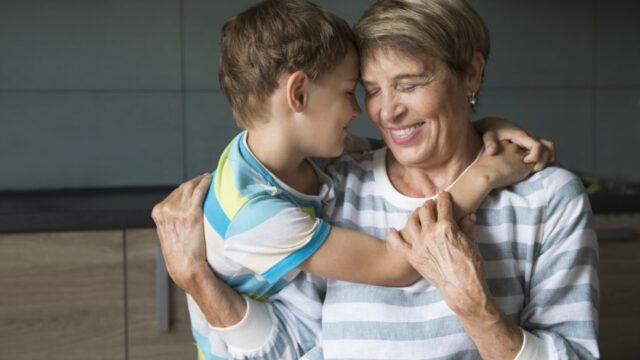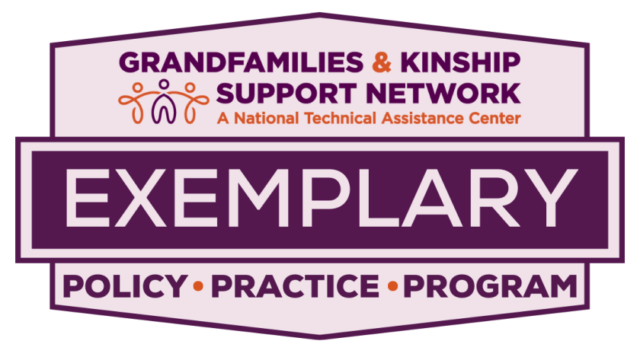Tip Sheet
Compassion Fatigue: Supporting Kin Caregivers Who Feel Overwhelmed
Download This Resource
A Network Monthly Resource: February 2024
Compassion fatigue is the term for the physical, emotional, and psychological toll that can occur when helping others. It can happen to those who are dealing with the long-term physical and/or emotional needs of others, such as grandchildren, adult children, and parents. Kin caregivers may feel drained, disconnected, and exhausted after intense caregiving over a long period of time. It is important to remember that this doesn’t mean that they don’t love or care about their family members. If left unaddressed, compassion fatigue affects both the caregiver’s well-being and their ability to care for loved ones.
You can help caregivers recognize when they have compassion fatigue and encourage them to get the support they need.
- Ask kin caregivers how they’re doing. Even before taking on a child’s care, kin caregivers may feel overwhelmed by their family situation. They may feel ashamed or angry, resentful or stuck, isolated or shut down. Becoming a child’s caregiver requires a shift of focus, with a whole new set of issues to address.
- Some caregivers struggling with compassion fatigue may describe feeling exhausted, overwhelmed, or alone—as if they have nothing left to give.
- Other caregivers may become burned out or apathetic, which could present in many ways, including a reluctance to seek services for the child, a shift in parenting techniques or homemaking, etc. Or they may be afraid to tell you about their difficulties because they worry that the kids will be taken away or believe that they should be able to manage without complaint. If you suspect a caregiver is silently struggling, seek specific information by asking one or more of the following questions: How are you sleeping? Eating? Who is your support system? When is the last time you spoke to them? What are you doing to take care of yourself when you need a break? What’s your biggest challenge in caring for this child?
- Express empathy, striving to put yourself in the kin caregiver’s situation. Acknowledge that they can’t do it all and provide reassurance. For example: I hear you saying _. Many kin caregivers feel this way.
- Note that taking on someone else’s child is a huge responsibility, and it is normal and okay to have fears about the situation and concerns about how caring for the child may affect other family dynamics.
- Emphasize that a caregiver’s job is to support the child in their care. Trying to support the child’s parent, the child, and oneself is more than anyone can handle.
- Remind them that the situation will improve and life will get better.
- Talk about possible changes that could make things better and connect kin caregivers with resources in your community: counseling, peer groups for kin caregivers, respite care, mindfulness/self-compassion practices, etc. Emphasize that they don’t have to do this alone. Before giving advice, ask permission. For example: Would you like to talk about potential changes? or May I suggest some ideas or services that may help? To brainstorm together, you might ask questions like: What is the first issue you think needs addressing? What is your biggest concern right now? What is one thing you would change about your current situation? What questions are keeping you up at night?
- Help caregivers to identify and reach out to possible sources of support. What relatives or friends might help out if they knew help was needed? What are the barriers to asking for that help?
- Help caregivers to make time for self-care and emphasize that it is not selfish. Note that self-care is a way of giving to yourself so you have something to give to others and help them envision what that might look like for them. Ask: What would you most like to do for yourself? How might you make time for that now?
- Enlist their help in figuring out their most pressing problem and a course of action for addressing it. Be sure to review resources that are available in your community so that you can provide relevant referrals.
- Remember to care for yourself too. People in the helping professions (you!) may also experience compassion fatigue. You need to take care of yourself, so you have the capacity to care for others. Taking steps to do the things that sustain you reduces stress levels, increases well-being, and helps you approach this difficult work with energy and compassion.


